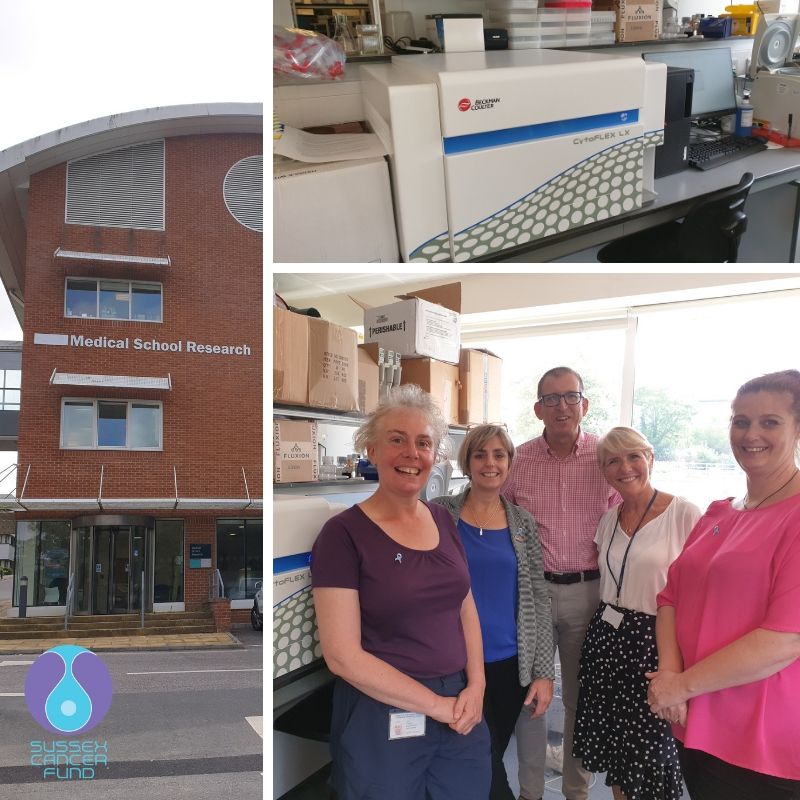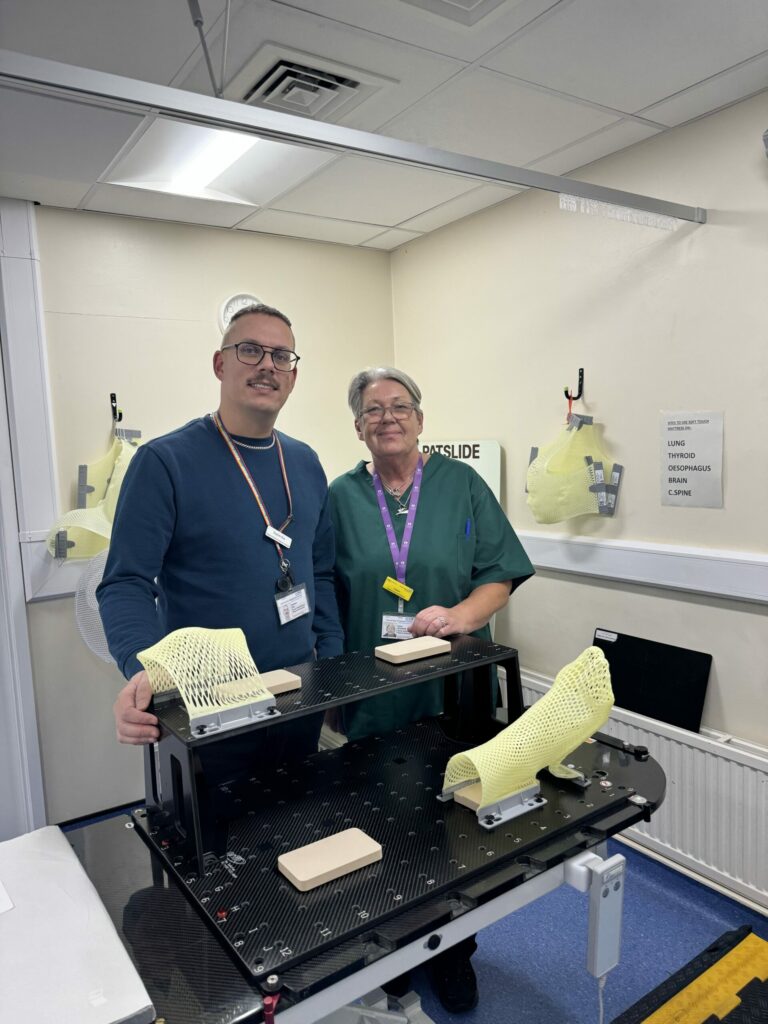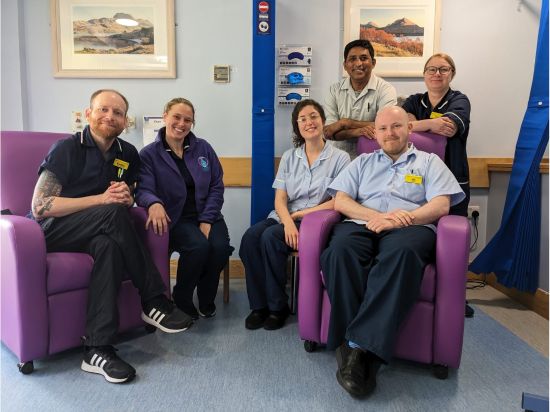
The Sussex Cancer Fund recently purchased a new Cytoflex Flow Cytometer for one of the Brighton Medical School research teams headed by Professor Chris Pepper and Dr Andrea Pepper.
The research being carried out by the team involves the study of individual proteins expressed on the surface and within cancer cells and looks at their effect on the behaviour of the tumour. The aim is to get a better understanding of the disease and subsequently develop new treatments.
Proteins on tumour cells can be labelled with antibodies that have coloured fluorescent tags on them and the Flow Cytometer is able to detect whether every cell is fluorescing or not. This allows the identification of the proteins present in and on the cancer cells as only those with the protein will bind the antibody and fluoresce. The expression of different proteins determine the types of tumour, it’s behaviour and how aggressive the disease is.
The Flow Cytometer is a significant investment with £90,000 being given by the Sussex Cancer Fund.
The new machine allows the measurement of 21 different parameters (proteins) at one time. The old machine was very slow and at best could measure just 8 parameters at a time. Why the new Cytoflex is significant is it allows much faster analysis, with much fewer set-ups as well as on-going savings.
The very nature of getting tissue samples is often a difficult and highly sensitive process, so live cancer cells for testing are a valuable commodity. By being able to test for more proteins in one go, donated tissue samples go a lot further. Also, the materials needed to carry out the analysis are very costly. The antibodies used in the experiments are between £200 and £500 each to purchase and, although they can be used for many experiments the initial outlay for a 21 colour experiment is about £7000. In very simplified terms, the fluorescent-tagged antibodies are introduced to the cancer cells, certain antibodies will stick to their matched proteins. Each of the 21 antibodies added to the cell has a different colour fluorescent tag which allows the researchers to see what proteins are present by what colour antibodies are stuck on the cell after un-bound ones are rinsed away. Using the new Cytoflex, up to 21 proteins are able to be measured in one go on every cell, which vastly extends the amount of data that can be collected from a single patient sample.
An example of the findings to come out of this study to date is the discovery of a specific protein, TLR9, expressed on the surface of Chronic Lymphocyteic Leukaemia (CLL) cells and which is generally found within cells. The Team have seen that if this protein is found on the surface of the cell, it is often associated with very aggressive CLL. They are working to find the right treatments that can block this protein and potentially lead to new treatments.
When asked about his experience as a researcher, Prof. Chris Pepper said humbly “The more you know, the more you realise you don’t know“.
The constant search for knowledge and understanding is key to finding new and better treatments which is why the Sussex Cancer Fund is developing more emphasis on support for research projects.
If you would like to help us to fund more research, please donate below.



